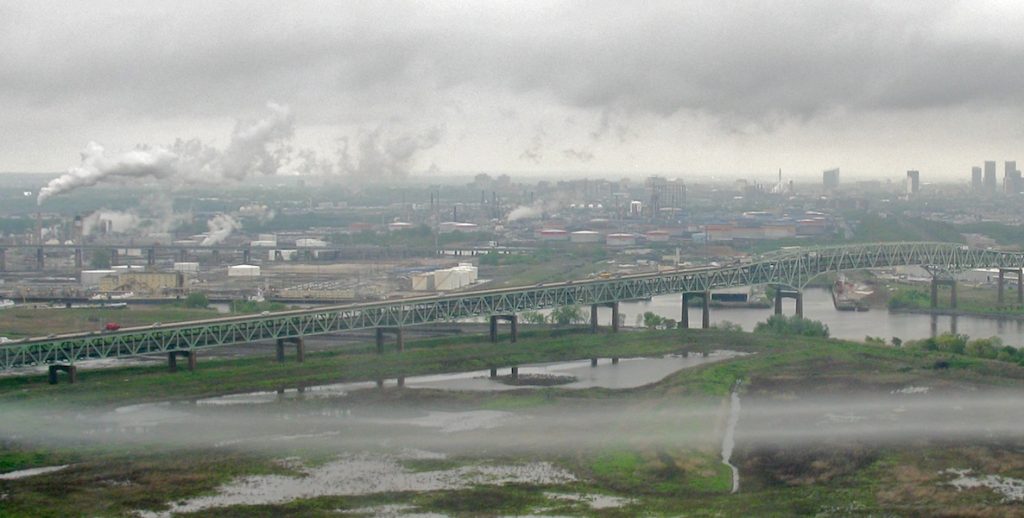The Democratic National Convention in Philadelphia is an opportunity to address the American ideal of liberty and justice for all, an ideal that, as recent events in Baton Rouge, Minneapolis, and Miami make clear, is far from reality. So when a close friend asked me, “In the wake of so much injustice, so much institutional violence, why should anyone care about climate change?,” I responded that the connection couldn’t be clearer: Climate change disproportionately exposes marginalized communities to environmental hazards while the same structural oppression denies us resources to survive them.
It’s become increasingly difficult for members of marginalized communities to have faith in institutions established to uphold rights when those very institutions regularly violate them, often with deadly consequences and with impunity. Legislative inaction and lack of serious reform only compounds our disillusionment with the system.
Similarly, efforts to stall climate action will affect vulnerable populations first and most severely. Those who are healthy and able-bodied, who live distant from pollution and coastal regions prone to sea level rise, or who have financial resources will be more resilient to climate change. Institutional violence occurs when laws, policies, or practices oppress, injure, or endanger identifiable groups in society. According to an April 2016 scientific assessment from the Obama Administration, climate change and the health impacts of environmental degradation fall disproportionately on communities with the least power to withstand them: the poor, people of color, people with disabilities, the elderly, and children. In this way, social identities have become determinants of health and safety.
According to an April 2016 scientific assessment from the Obama Administration, climate change and the health impacts of environmental degradation fall disproportionately on communities with the least power to withstand them: the poor, people of color, people with disabilities, the elderly, and children.
We see examples of these impacts in our own communities. In South Philadelphia, 45,000 residents live within a one-mile radius of Philadelphia Energy Solutions (PES), the city’s leading emitter of air pollution. Within that radius, 71 percent are people of color, and 32 percent live below the poverty level. According to the U.S. Environmental Protection Agency, climate change and air pollution are closely linked: High concentrations of greenhouse gases such as ozone contributes to climate change, which in turn also leads to increased air pollution and health risks. PES’s enormous contribution—over 700,000 pounds of toxic chemicals and carcinogens annually—compounds the situation and devastates quality of life in these communities.
Last year, Public Health Management Corporation’s Southeastern Pennsylvania Household Health Survey reported that 20 percent of adults and 22 percent of children in Philadelphia suffer from asthma. This health risk heightens residents’ sensitivities to pollution, exacerbating health impacts from exposure to chemical releases. It hits low-income and minority residents in South Philadelphia—who may be less prepared to deal with pollution’s physical and financial consequences—especially hard. PES’s continual violations and toxic emissions, despite numerous regulatory interventions, are flagrant acts of violence against this community. Expanding the fossil-fuel infrastructure in South Philadelphia—the so-called “energy hub”—will only intensify this violence against low-income and minority residents.
Finally, the ongoing efforts in the federal courts and the state legislature to stop implementation of the Clean Power Plan—the first federal plan that sets carbon emission limits on existing power plants—showcases a blatant disregard for the lives that climate change puts at risk. So far, those efforts have successfully delayed the plan’s implementation thanks to a Supreme Court injunction.
We must continue mobilizing for change not despite our frustrations and sorrows but because of them. Climate change is a social justice issue. As such, we must amplify our voices, not silence them. So, to my friend who asks why we should care about climate change and to the delegates and other policy makers who will soon converge on this great city, let me remind you that our reliance on fossil fuels is an act of institutional violence. Inaction is a denial of liberty and justice for all.
Zakia Elliott is Southeast PA outreach coordinator for PennFuture.

